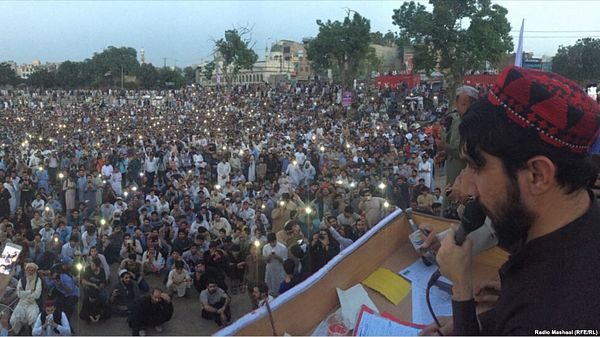
Prime Minister Imran Khan has long suffered from a ‘foot in the mouth’ disease. However, his repeated attempts to portray an entire community and culture – Pashtuns – as terrorists or holy warriors and blame them for the ills facing Pakistan has elicited strong backlash within both Pakistan and in Afghanistan.
As Syed Irfan Ashraf wrote in Dawn, “to absolve Pakistan of its role in the fall of Kabul, Prime Minister Imran Khan is trying to sell a selective story based on two simplified themes: first, he resorts to dataism (the ideological use of data) to play the victim card at the expense of the Pakhtuns; second, he shifts the blame onto the Pakhtuns as a nation, portraying them as holy warriors by choice to achieve larger policy ends.”
As Ashraf notes, “Khan’s address to the UNGA last month is a case in point. Of particular importance are the segments relating to the Pakhtun question. Referring to Pakistan’s joining the US-led ‘war on terror’, he said, “80,000 Pakistanis died. $150 billion were lost to our economy. There were 3.5 million internally displaced Pakistanis”. This aggregation obscures the fact that not a single IDP was non-Pakhtun. Those who died were also mostly Pakhtuns. This disproportion is true for economic losses too. Yet, de-particularising the victims is sought in order to blur victimisation.”
Further, “Clubbing together the Taliban and Pakhtun nationalism is toxic fiction with real consequences. The Taliban derive their identity from a jihadi culture sponsored by the US and nurtured by the Pakistani state in the shadow of Cold War politics. Eighty thousand jihadists, including Arabs, were trained in the Pakhtun belt before being launched to fight the Soviets in Afghanistan. The Taliban — who were groomed in the madressah culture on the Pak-Afghan border with the homeless Arabs later called Al Qaeda — might speak Pashto but take pride in Arab culture. They don’t believe in a national land, a national flag or local history. They killed thousands of Pakhtuns. Yet, Khan wants to prove they are nationalists.”
Ashraf ends by noting, “The prime minister has got more on his plate than he can digest. Reducing the loss of Pakhtuns to collateral damage (aggregate data) and distorting history by rebranding terrorism as a reactionary and regional Pakhtun phenomenon is an act of using cultural space for military extension beyond the border, a form of adventurism that will lead Pakistan towards further isolation.”
![]()





